VICTORY: Africa Bans Killing Donkeys for Chinese Medicine
Update (February 21, 2024): Victory! Following multiple investigations and years of campaigning by PETA entities—including hundreds of thousands of e-mails from our compassionate supporters—African Union leaders have approved a ban that makes the slaughter of donkeys for their skin illegal across the entire continent for the next 15 years.
This moratorium on donkey slaughter deals a massive blow to the Chinese ejiao industry—which relies heavily on imports of donkey skins from Africa and elsewhere to fuel itself—and will prevent millions of donkeys from enduring painful, terrifying deaths.
Update (October 15, 2020): Earlier this year, Kenya’s cabinet secretary for agriculture announced a ban on all donkey slaughterhouses in the country, but it has now been rescinded. Donkeys need your help more than ever.
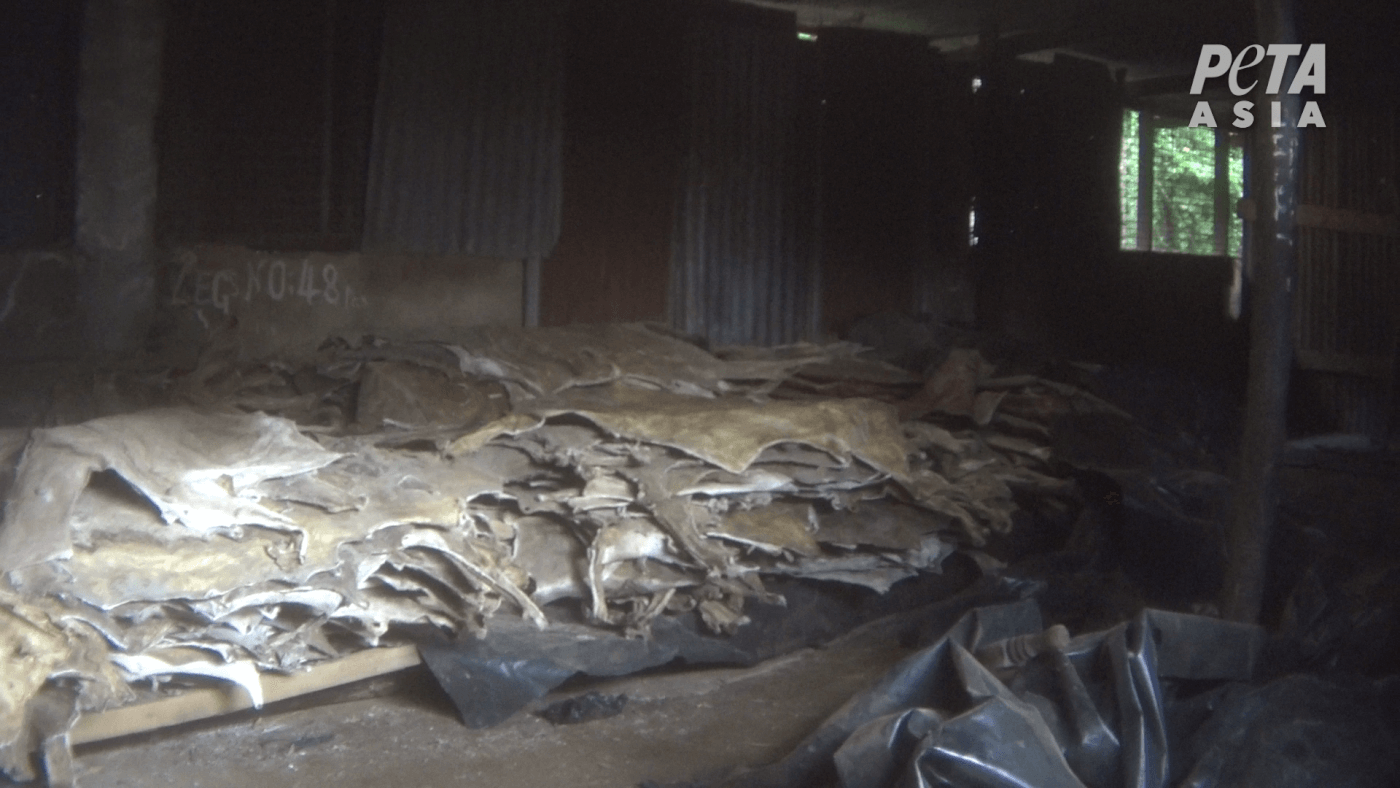
Original post:
In 2017, a PETA Asia investigation revealed that donkeys in China—some as young as 5 months old—are bashed in the head with a sledgehammer and their throats are slit so their skin can be boiled down to make gelatin for a traditional Chinese medicine called ejiao. A breaking PETA Asia investigation has found horrific abuse inside Kenya’s donkey slaughter industry, which exists only to meet the demand for this product in China.
The footage shows workers at government-sanctioned slaughterhouses mercilessly beating frightened donkeys.
Donkeys Face Harrowing Journeys, Denied Food and Water
Kenya has opened three donkey slaughterhouses in the last three years. The donkeys are transported by truck from neighboring countries such as Ethiopia, Tanzania, and Uganda that have already enacted policies to stop this cruel practice. The grueling trip can take several days, during which the donkeys are deprived of both food and water.
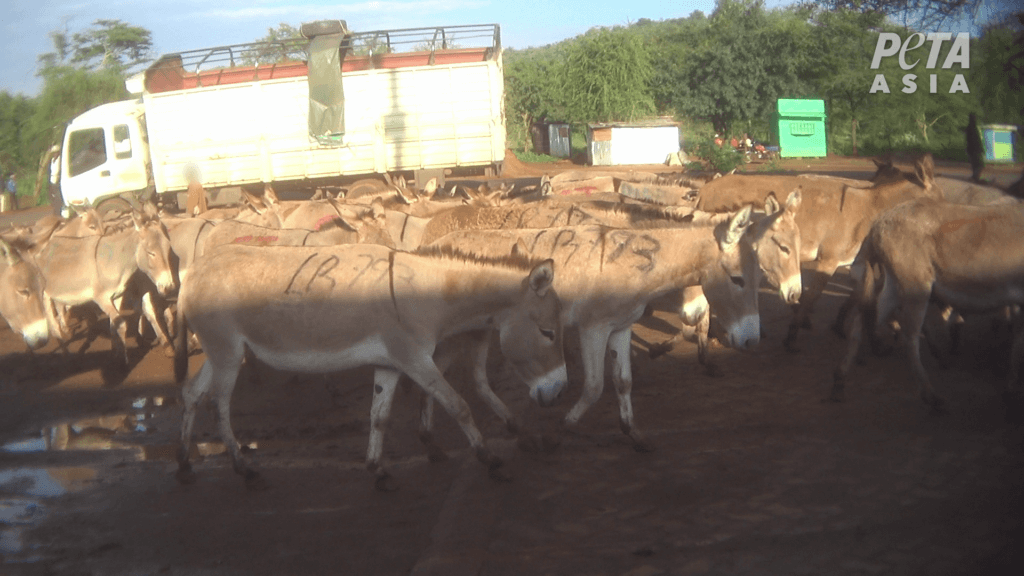
Donkeys Are Injured and Some Die During Transport
Eyewitnesses found dead donkeys who had not survived the torturous journey dumped outside a slaughterhouse. One donkey on a truck appeared to be injured and was unable to stand up. Workers dragged her out, left her at the front gate of the same facility, and kicked her. Eyewitnesses didn’t see her receive any pain relief or treatment—she was simply left to suffer from her injuries.
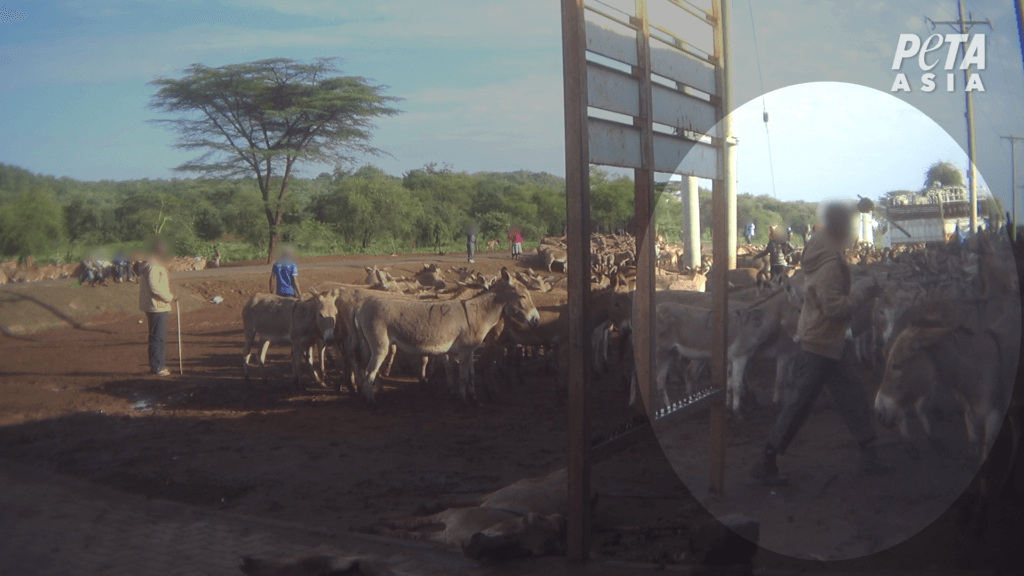
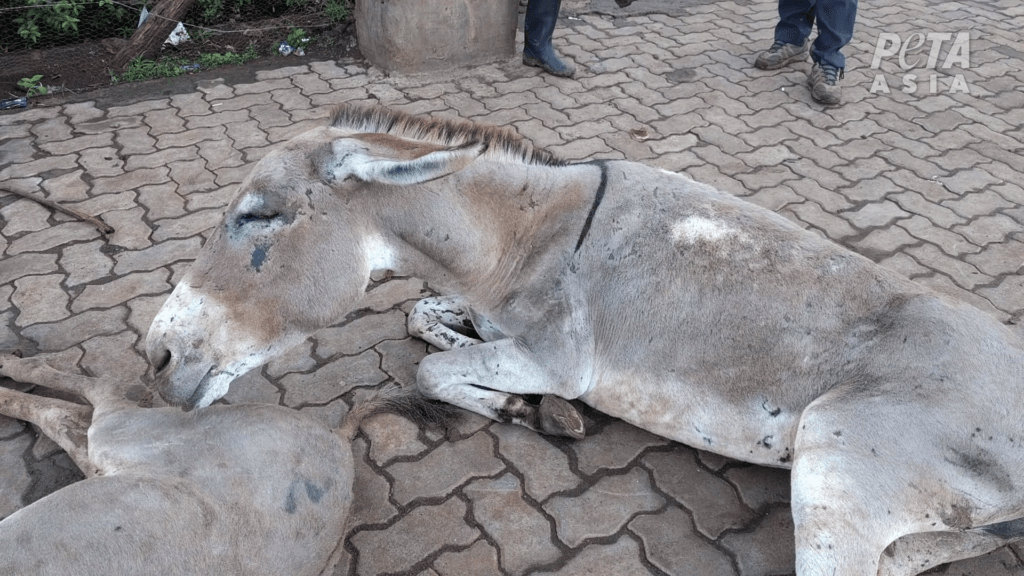
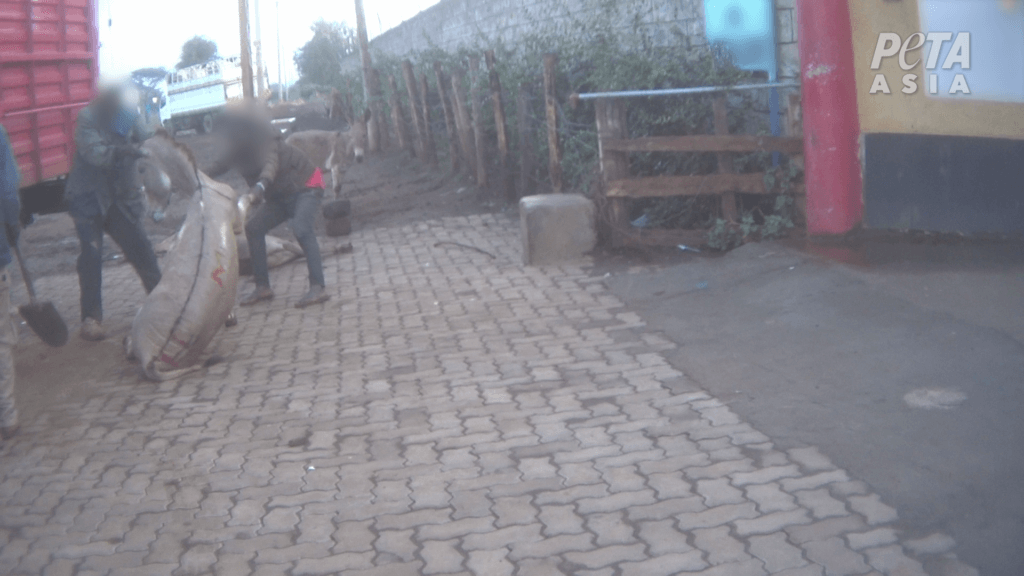
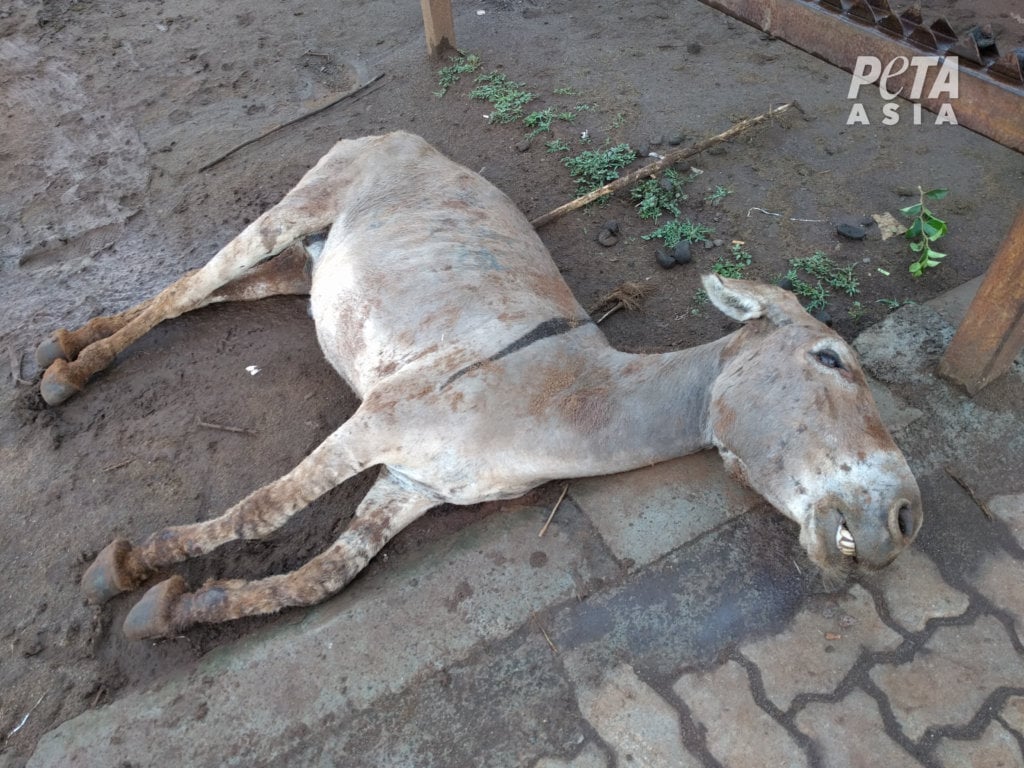
Other Countries Have Already Banned This Cruel Practice
Many African countries including Botswana, Burkina Faso, Mali, Niger, Senegal, Tanzania, and Uganda—have banned the export of donkey skin or have closed down Chinese-owned slaughterhouses. Yet, despite a warning from China’s official National Health and Family Planning Commission that ejiao is really just “boiled donkey skin,” donkey slaughterhouses continue to operate in countries like Kenya in order to meet China’s demand for the product.
There are virtually no regulations against the abuse of animals on farms or in slaughterhouses in Kenya, so none of the violence captured in the footage is punishable by law.
PETA and its affiliates have been pressuring officials, companies, and consumers around the world to stop supporting this cruel industry. There are numerous alternatives to ejiao, including modern medications and herbal medicines, that are more effective and don’t require that any animals be killed.
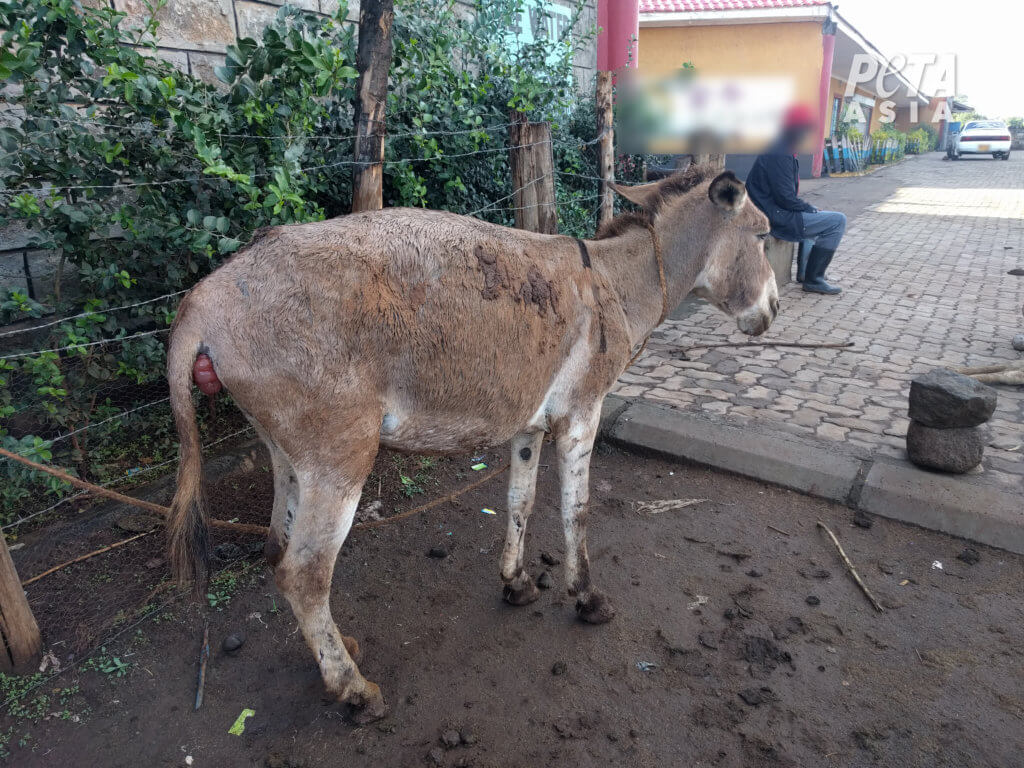
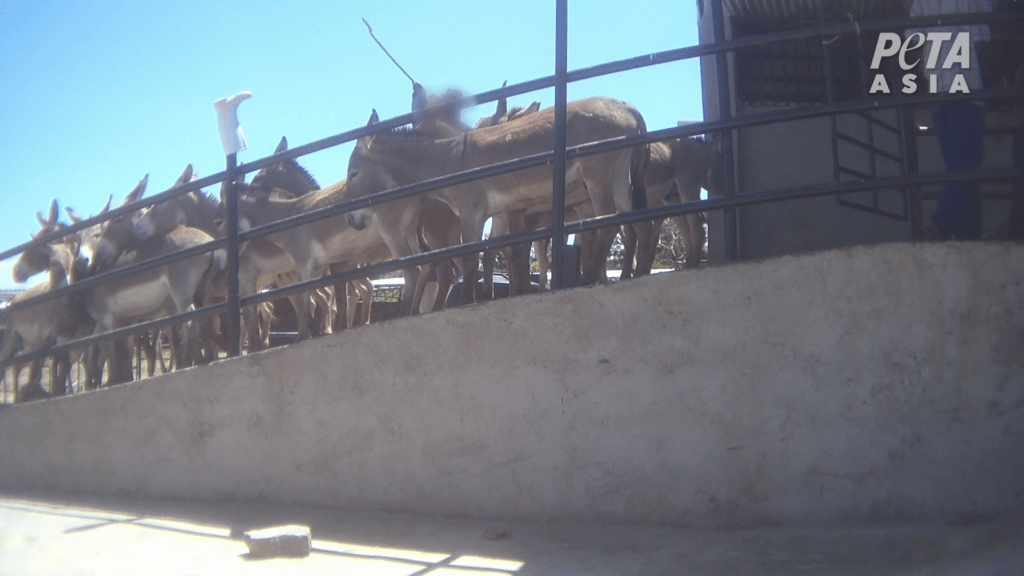
What You Can Do
Medicine made from animal parts doesn’t belong in this century. As consumers, we can reject cruelty to animals and save donkeys’ lives simply by choosing vegan alternatives, never buying ejiao products, and refusing to shop at stores that sell them. For the sake of suffering donkeys, please read ingredient lists and steer clear of medicines, beauty products, candy, and beverages containing ejiao.